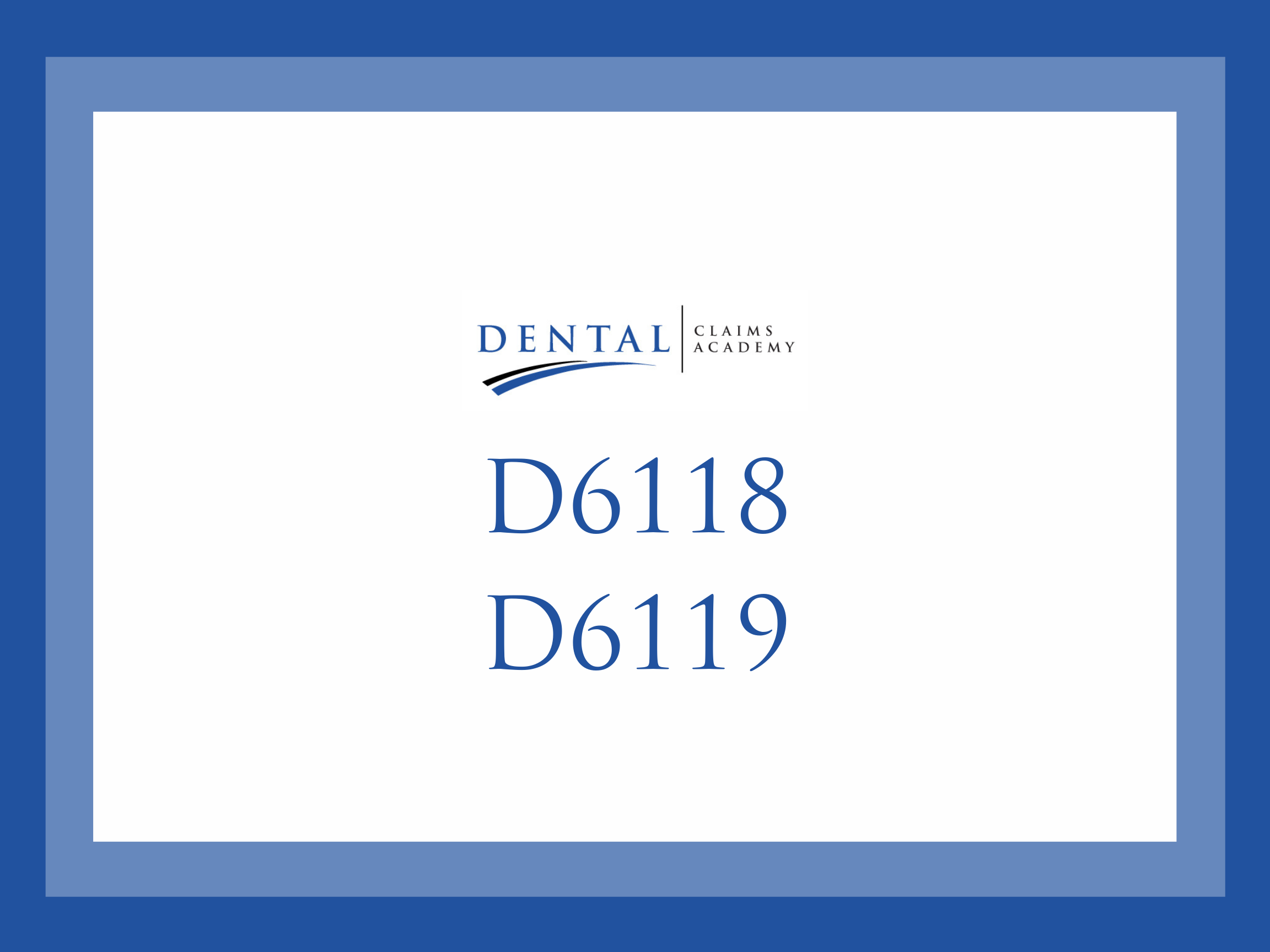What are codes D6118 and D6119?


In 2018, the Code Maintenance Committee (CMC) recognized a gap in the CDT code set. Dentists were placing interim fixed hybrid dentures and there was no code to adequately document this procedure. Thus, CMC accepted two new codes into CDT 2019.
It has been my experience in the past couple years that many are not aware of these two codes. The codes are:
D6118 implant/abutment supported interim fixed denture for edentulous arch – mandibular
Used when a period of healing is necessary prior to fabrication and placement of a permanent prosthetic.
D6119 implant/abutment supported interim fixed denture for edentulous arch – maxillary
Used when a period of healing is necessary prior to fabrication and placement of a permanent prosthetic.
Your documentation should include the approximate length of time the interim prosthesis is expected to be utilized. Also, the reason for the interim such as “worn while healing and during the osseointegration period following implant placement”.
Will dental insurance plans reimburse for CDT codes D6118/D6119?
Dental benefit plans that include an implant rider may consider reimbursement for an interim hybrid prosthesis. However, most plans with implant riders exclude D6118 and D6119 from coverage listing it as a non-covered service.
Based on a review of 3 different PPO processing policy manuals, when non-covered by the plan, it is billable to the patient unless prohibited by the PPO contact. You should refer to your PPO processing policy manuals for clarity as to whether interim hybrid dentures are billable to the patient. Keep in mind that a PPO can limit your fee charged to the patient for non-covered services in some circumstances.
Additionally, any plan may apply the replacement clause to an interim prosthesis, even if the plan does not provide coverage for the interim prosthesis. This is plan specific but be aware this is possible. It is advisable to confirm implant coverage prior to the start of associated treatment.
When reporting to an insurance payer, include a narrative indicating the length of time utilized and the reason for the interim prosthesis. Additionally, as with a definitive hybrid prosthesis, include supporting documentation such as a current full arch radiographic image, dates of tooth loss, date implants were placed and if this is the initial placement. The list of recommended supporting documentation is not an exhaustive list. Each payer has specific documentation requirements.
Don’t let navigating dental codes intimidate you
As stated, implant coding can be confusing. Luckily, Dental Claims Academy has a webinar coming up on May 11 covering implant coding with a Q&A following. This is a resource everyone in the dental industry can benefit from, and you will be able to hear questions from other people within the dental industry. If you are unable to attend on May 11th, the webinar recording will be available for purchase on our Dental Claims Academy website.
Current Dental Terminology, © 2020 American Dental Association. All rights reserved.

Related Posts
Dental revenue resources from Dental Claim Support
